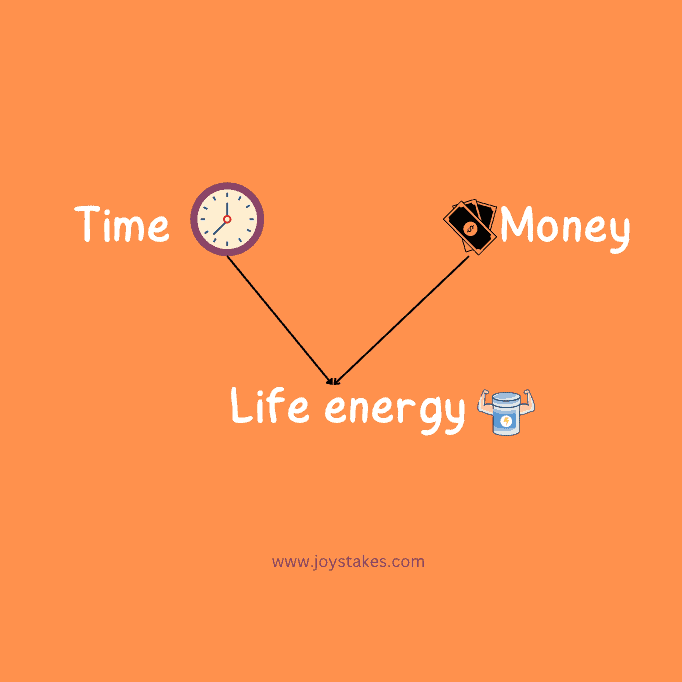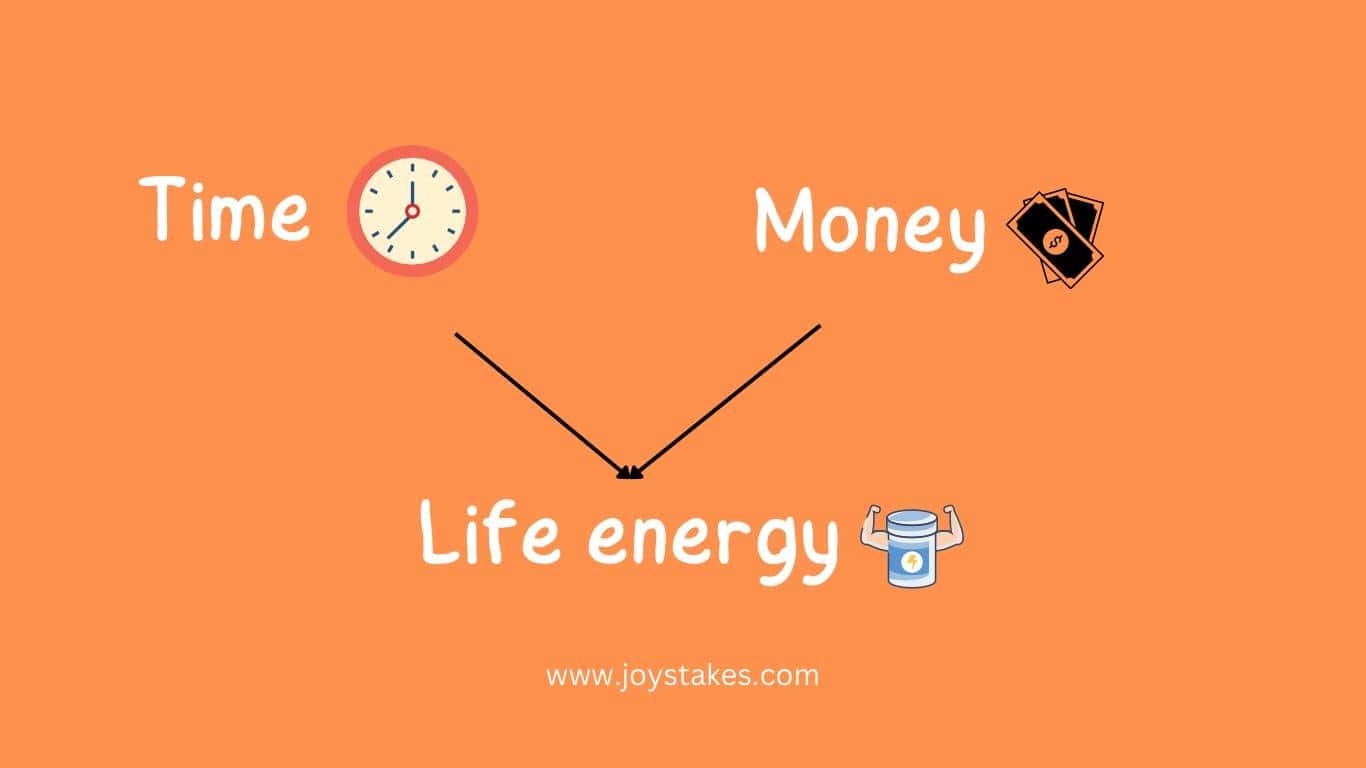What would you do if you didn’t have to work for money? The FIRE movement has shown that this is possible. You can retire early if that is your dream.
Many refer to this book as the originator of the FIRE movement. It offers a new perspective to measure what you spend on in proportion to your life energy.
“Your Money or Your Life” by Vicki Robin and Joe Dominguez shows us the path to financial independence that goes beyond just numbers.

Are you making a living or making a dying?
Most people are habitually unhappy, regardless of their income, according to a research conducted in the US and Canada. And they are convinced that getting more money will make them happier.
Worse is the expectation that what we buy will make us happier. Our consumption is not only failing to make us happy, it is also destroying the planet.
Our needs keep growing, we hit the plateau of the curve – the enough junction. We shrug and keep buying stuff and end up in clutter village. We go past needs to luxury.
Each person needs to define what “enough” is to them.
“Enough is a wide and stable plateau. It is a place of alertness, creativity, and freedom. From this place, being suffocated under a mountain of clutter that must be stored, cleaned, moved, gotten rid of, and paid for on time is worse than dearth.”
Make Peace with your past
The book suggested a novel approach – you sum up how much money you have earned over your life time and calculate your net worth (assets – liabilities)
To do this, you have to be thorough. While it requires honesty, it’s a “no shame, no blame” zone. Acknowledge what you have done and focus on what you can change.
Although I was hesitant, I performed this exercise.
I encourage you to try it. If you try it, leave a comment. How did the result make you feel? Excited? Sad? Fulfilled? Remember – no shame, no blame!
What is a Gazingus pin?
Gazingus pin is “any item that you can’t just pass by without buying”. It may be clothes, shoes, gadgets, brooches, hats, books.
Your Money is Your life energy.
Most of us have heard the saying “Time is money”. We give up our limited time to our customers, clients, and employers in exchange for money.
The book talks about calculating the amount of life energy you put into the stuff you buy, which is your net pay/hours you worked.

40 hours is not all it takes to work. Add commute time, lunch time, time to recover from work (daily decompression), and much more.
The opportunity cost of not working is your salary less other expenses you would not have if you weren’t working – expensive clothes, professional subscription, transport, kids’ day care, convenience food.
Take for example, your net pay less other work-related expenses is $1,000 monthly. And the hours you spend working and commuting to work in a month is 200 hours. Your life energy number is $5/hour.
Consequently, if you splurge $20, that is 4 hours of work.
How many hours do you have left?
If you are 40 years old, it is about 350,000 hours. That may seem like a lot, but those hours will feel very precious at the end of your life. Spend them well now and you won’t have much regrets later.
There is nothing in your life that is more valuable than your time the moment you have left.

This book also highlights financial tips you may have heard of – reduce your spending, live within your means, take care of what you have, and keep track of your spending.
Contrary to other belief, keeping track of your money will not limit you, it will give you better context to make more informed choices.
At the end of each chapter, the authors pose questions to encourage the readers think deeply. They also recommend that you ask “why” and “how has society shaped my answer” for each answer you give.
Here is one such question:
Question: Talk about one thing you own that you love. What do you love about it?
A: (My answer surprised me.)
My piano – When I play it, my mind is calm. My thoughts are clear. I’m lighthearted. My senses are alert. My fingers strum the keys in alternating patterns, making well-orchestrated tones. All is well with the world.
No, not clothes and shoes, not phones and gadgets. Even I am shocked.
I don’t think society has shaped this answer. I love music. Making music is another level of magical.
Now over to you. What is one thing you own that you love? And why?
Valuing your life energy – maximizing income:
There is a limit to how much you can reduce your expenses. On the other hand, your earning potential is limitless.
Valuing your life energy is about getting the highest pay you can get without compromising your health or integrity, out of respect for your life energy.
The time you put in at work is your life energy. You can’t afford to do it haphazardly. Put in your best.
Money is your life energy, and you should spend it only on what brings you joy and serves your purpose.
How do you know when you have reached financial independence?
Most proponents of the FIRE movement use this formula:
(Net assets* interest rate)/ 12 months = monthly investment income
When your monthly investment income can take care of your monthly expenses, you have reached financial independence (the crossover point).
When you align your purpose, your income, and expenses, these three should not be neglected: Abilities, Belonging, and Community
Abilities is your skills and knowledge – what you know how to do.
Belonging is who walks with you in life.
Community is the society you live in open (in real life and online) – your neighbours, your city, your environment – and nature.
Choice is at the heart of financial independence. It’s not about the money. It’s about the choice of where you direct your precious resources: your time, your attention and your life.
Always remember:
“…no investment you make guarantees that geopolitical or economic conditions will not shift or protects you from finding that the nest egg you thought would give you a comfortable income for life…”
Key takeaways:
The time you put in at work is your life energy. You can’t afford to do it haphazardly. Put in your best.
The money you get from work is also your life energy. Don’t squander it.

Comments (2)